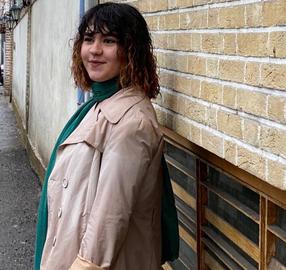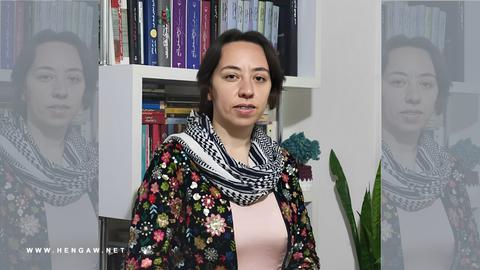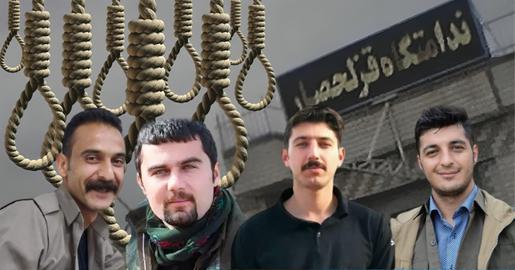If we were to compile a list of influential women in the private sector and charities, the name Ashraf Bahadorzadeh (Ghandehari) would undoubtedly be at the top of the list. She founded the Kahrizak Ladies’ Charitable Society, which she directed for more than 10 years. Bahadorzadeh was so dedicated to it that she endowed all the property left to her by her father and husband to the charity.
Bahadorzadeh was born into an educated family in Mashhad in 1925. She was eight when they moved to Shemiran, north of Tehran, and 17 when she was married to her father’s cousin. Her father, Haj Mohsen Ghandehari, was a well-known bazaar merchant who had built a small ḥosayniya, a congregation hall for Shia Muslims, in his garden, where classes in religion were held. One of these classes was led by a woman named Sharifeh Katuzian, who gave lectures on the Koran and morality to devout local women. Bahadorzadeh was one of the women who attended this class and she remembered the remarks that her teacher made at the end of every session, telling her pupils to help the poor in a way that would preserve their dignity.
Desperate Appeal for Help
Having a ḥosayniya in their home meant that everyone in the neighborhood came to the family for help. Late one night Bahadorzadeh heard someone knocking at the door.
In a later interview she would recall: “It was a cold night and there was a snowstorm. At 11 pm a man came to our door. I opened the door and saw him shivering. He entered and said, I have a mother-in-law who is incontinent and stinks. She has become a real problem for the family. We have just one room in a rented house and it smells bad. The children have grown up and do not come home. They sleep in the alleyways and have become delinquent.”
Bahadorzadeh met the woman, who had been refused by every hospital. Her family could not take care of her but her desperate son-in-law did not want to throw her into the street. He had heard that there was a place in Kahrizak that would provide care for the elderly and the disabled who have nobody to take care of them. Two days later he went there and begged them to provide his mother-in-law with care.
“I went to that address,” the man told Bahadorzadeh. “The doorkeeper was a paralysed man. There were just a few rooms. They told me to bring my patient and place her there. They didn’t ask for any documents. We were elated, and so was my patient.” After expressing his thanks, the man said, “I am asking you to pay a visit there. I am asking you to do that, only once.”
The man repeated the last sentence a few times, encouraging Bahadorzadeh to visit the sanatorium.
It was nearly Nowruz, the Iranian New Year, and the man’s words echoed in Bahadorzadeh’s ears. She asked her husband and daughter to accompany her to Kahrizak. To find the place, they were told, “Keep going straight until the stink hits you! Kahrizak is where the smell is the foulest.”
Immediately on arrival Bahadorzadeh came upon a horrible state of affairs which made her call Dr. Mohammad Reza Hakimzadeh Lahiji, then the head of Firoozabadi Hospital: “We arrived at Kahrizak at 5 am on Thursday morning. Ms. Katuzian who helped me at the ḥosayniya accompanied me. As soon as we got out of the car we saw Dr. Hakimzadeh. He told me, ‘You see, you could make it!’. I was surprised and said, ‘I only just arrived’. He said, ‘Last night you came alone, but now you have company. God has doubled your force even before you have started.’
Charity Work Reaches Thousands
“There were two brooms behind the door. Pointing at them, he told us, ‘Start wherever you want. I am late and have to go to the hospital.’ So Ms. Katuzian and I began to work. The municipality would not collect the garbage because it was a remote area and the village lacked all facilities. We collected some firewood, boiled the water and got started.”
A nun by the name of Ms. Goldfinger later joined them in their endeavours and thus the Ladies’ Charitable Society which started with only two members was born. It now has more than 2,500 volunteers on the books who regularly attend Kahrizak sanatorium to clean and support the social workers. Through the efforts spearheaded by Bahadorzadeh, who joined the official founding committee in 1972, Kahrizak went from being a neglected sanatorium to a vast charity complex and nursing home providing care to up to 1,600 elderly and disabled patients.
Bahadorzadeh also coordinated fundraising efforts together with the nursing home’s board of trustees. With the financial backing of kind-hearted donors they were eventually able to construct a building, known as Jasmine Flower, dedicated to caring for patients with multiple sclerosis. She also travelled to the United States and other countries, holding charity bazaars to help keep the nursing home afloat.
In the aftermath of the devastating Roodbar earthquake in 1990, Bahadorzadeh and the Ladies’ Charitable Society were among the first to rush to the aid of stricken families in the area. They set up a House of the Mother and Child in the devastated zone, providing shelter and care for around 650 children orphaned in the disaster. They did the same for those orphaned in the Bam earthquake in 2003. Today the project supports around 500 disadvantaged women and children, providing a serene and nurturing environment in which they can thrive.
Nicknamed the Mother Teresa of Iran for her benevolent work at Kahrizak over four decades, Bahadorzadeh died on February 23, 2017, at the age of 91. She will forever be remembered as the woman who, on a cold winter night and at the request of a needy family, came to know the Kahrizak sanatorium - and with the help of her friends, family and companions, turned it into a little paradise for those most in need.
visit the accountability section
In this section of Iran Wire, you can contact the officials and launch your campaign for various problems

























comments